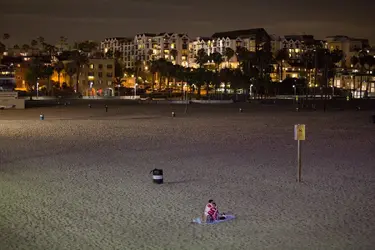Honestly, as amazing as the little Fuji cams' sensors are, they're still not quite up there with even some of the last generation full frame cameras.
Here's a shot from my Fujifilm X100S (Same sensor as the X100T/XT-1/XE-2) at ISO 6400, overexposed on purpose to minimize noise in post.
View attachment 98951
Here is a similar shot on my Canon 6D at ISO 12,800.
View attachment 98952
And a 50% zoom comparison
View attachment 98954
And here's a comparison after I bring the Fujifilm file's exposure down 1 stop.
View attachment 98955
The Fujifilm file at 6400 is slightly cleaner after the exposure is brought down than the Canon file at 12,800.
The Fujifilm sensors are quite spectacular in terms of dynamic range, noise quality (it really is much more randomized and filmic than Bayer array sensors) and even in terms of the amount of noise the camera produces. And their shadow noise is VERY well controlled when compared to Canon cameras.
However, these are not Holy Grail cameras. They still "suffer" from their smaller sensor size. The difference is pretty negligible in any real world sense, but it is there. They're also at a smaller resolution, so if the 6D files were downsized to 16 MP the it would also further minimize noise.
I love Fujifilm and Canon has kind of become an industry punchline, but I think saying the current APS-C X-Trans sensors are superior in low light to FF Canon sensors (or any current FF sensor) is wishful thinking.






![[No title]](/data/xfmg/thumbnail/34/34116-b81991a4a8a532509a981cadbacd573c.jpg?1734164576)




![[No title]](/data/xfmg/thumbnail/34/34114-dd12be026979ccd4182c5f478bd91448.jpg?1734164566)


![[No title]](/data/xfmg/thumbnail/33/33422-d1097b04586502aba932c8d5409d8026.jpg?1734163437)
